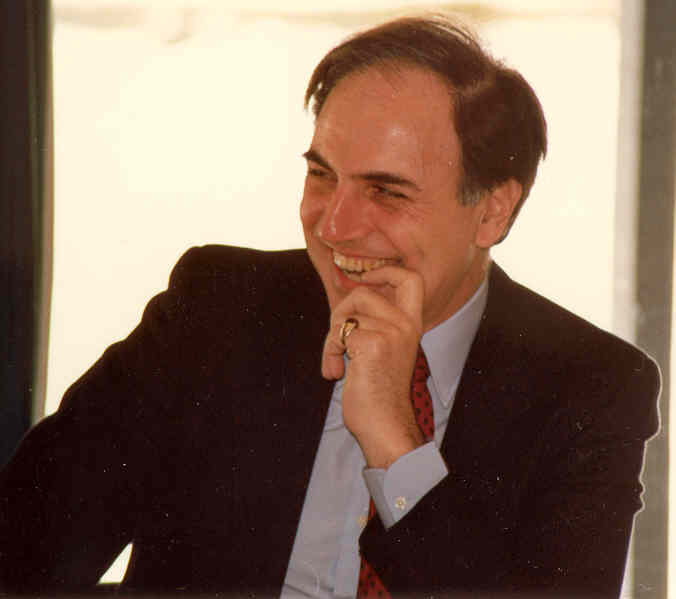The Jewish Humanist Volume 27, No. 6, January 1991
The right to die.
On the surface a rather bizarre right. Especially when we remember that most human rights talk is about the right to live. Demanding freedom, dignity and security is all related to enhancing the quality of life. Suicide seems a less appetizing civil liberty.
But in recent years the affirmation of the right to die has been growing stronger and stronger. Modern medicine has prolong the life of many people beyond their ability to cope with the ravages of aging. Medical technology has become so sophisticated that terminally ill and comatose patients are kept alive by machines that promise no more than a living death. Expectations for the quality of life have resin decade by decade. Excruciating pain and humiliation are no longer tolerable or justifiable for millions of people.
The right to die issue was dramatized recently, right here in the state of Michigan, with the Jack Kevorkian case. A Detroit area physician and euthanasia advocate helped an Oregon woman, Jane Adkins, Who is suffering from Alzheimer’s Disease, to commit suicide. Refused a setting in a motel or funeral home, Kevorkian set up his suicide machine in the back of a van. Adkins presses the button and died. She had chosen Michigan as the place of her suicide because there was a physician who was willing to assist her and because for some odd reason there is no law in the state of Michigan that prohibits assisting at a suicide.
A public furor arose over the Kevorkian action. Many condemned him as a moral monster who had betrayed his oath as a doctor. Others called for his immediate arrest. Still others demanded that the state legislature act immediately to cover up the loophole in the law. In the end he was put on trial in Oakland County. But, shortly after the trial began, the prosecutor withdrew the charge claiming that the present law failed to sustain his guilt. The anti-euthanasia people are livid. They are working to change the lot to make sure that what Kevorkian chose to do will never again go unpunished.
The anti-euthanasia people do not believe in the right to die. They do not believe in an easy death (that’s what the word euthanasia means). They believe that all forms of suicide are wrong even for the terminally ill.
They believe that God creates life and only God can take it away. They believe that human suffering is a mystery that only God can understand. Although it appears to be evil it really serves some good purpose which the limited human intellect cannot discern. Moreover, human life is sacred and taboo because it bears the divine image. It cannot be tampered with. What Kevorkian chose to be was God. And no human being has the right to play that role.
Now most humanists might object to the haste and shabby setting which accompanied the suicide of Jane Adkins. But they cannot resist the right of Jane Adkins to be the master of her life and to choose her death when she was suffering terminal pain and humiliation. That right to die, under such circumstances, is a moral right.
The dispute with traditionalists centers around the purpose of life. For the pious the purpose of life is life. It is the humble acceptance of whatever God has arranged for us. For us as humanists the purpose of life is not life. A life with no pleasure or dignity, or with no chance of pleasure or dignity, is without meaning. The purpose of life is the quality of life, a quality of life defined by basic human needs. When these needs can no longer be satisfied life ceases to be significant. Living as a “vegetable“ or a living as a dying victim of painful disease has so special moral claim to preservation.
The right to die is the other side of the right to live with dignity. If indeed we are “divine“, as the pious claim, we demand for ourselves what even the most modest of deities would insist for themselves.
What are the implications of the right to die?
It means the people who are terminally ill and who have no realistic hope of recovery have the right to choose death.
It means that society should assist these people so that their justifiable suicide will be easy (euthanasia) and not hard.
It means that the medical profession, as the expert agents of society, should assist the people who make this choice so that it is not carried out hastily and in settings that are inappropriate. No person should be assisted in this choice until their decision has been evaluated by a panel of community workers including physicians, counselors and peers, set up for this purpose. If the committee concurs with the petitioner, A suitable place of death and medical and psychological help should be provided. Physicians, who, in good conscience, cannot participate in this program should not be required to do so.
It means that the state legislature should not yield to the traditionalists who, most likely, represent only a minority of the state’s voters on this issue, But should respond to the legitimate demands of the people of choice to turn the moral right to live with dignity into a legal right.

